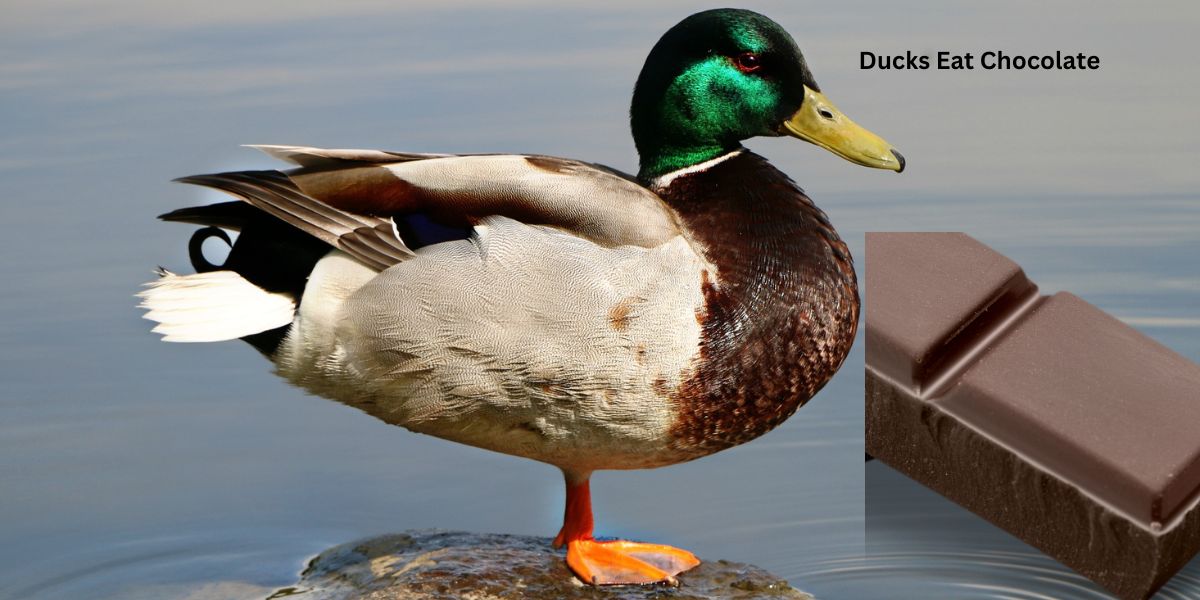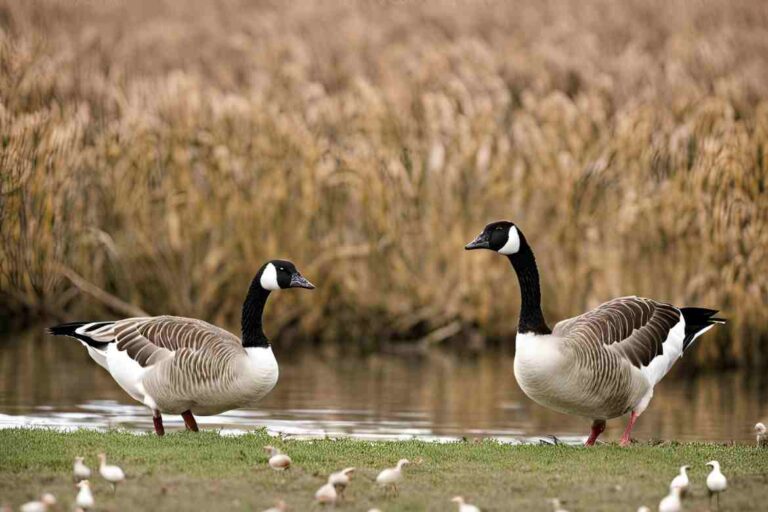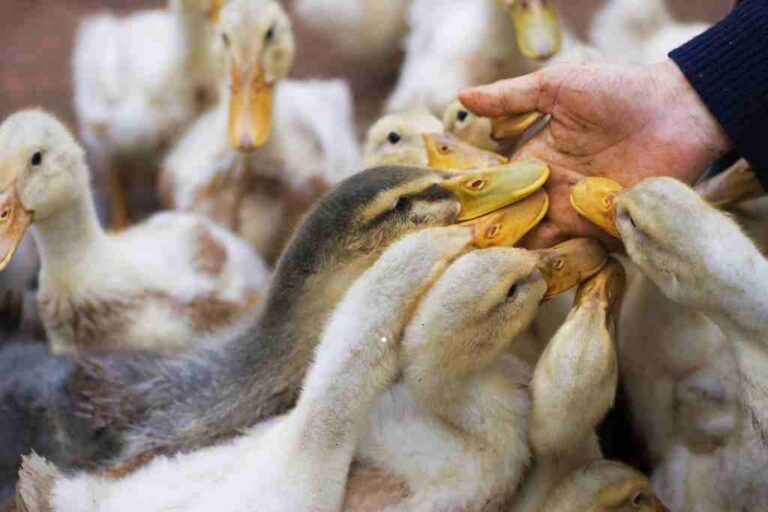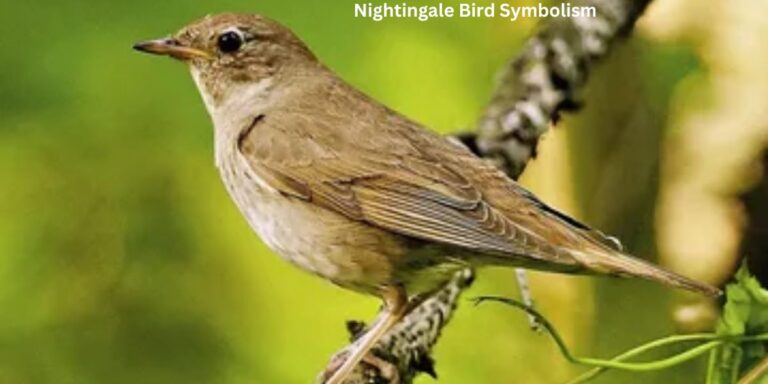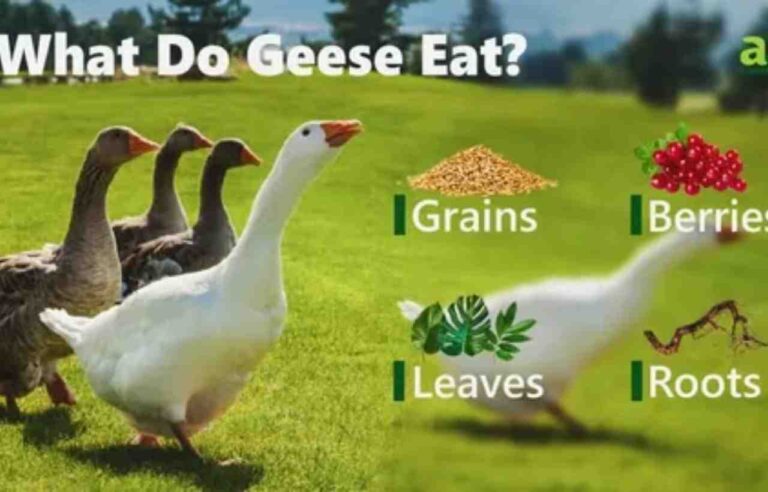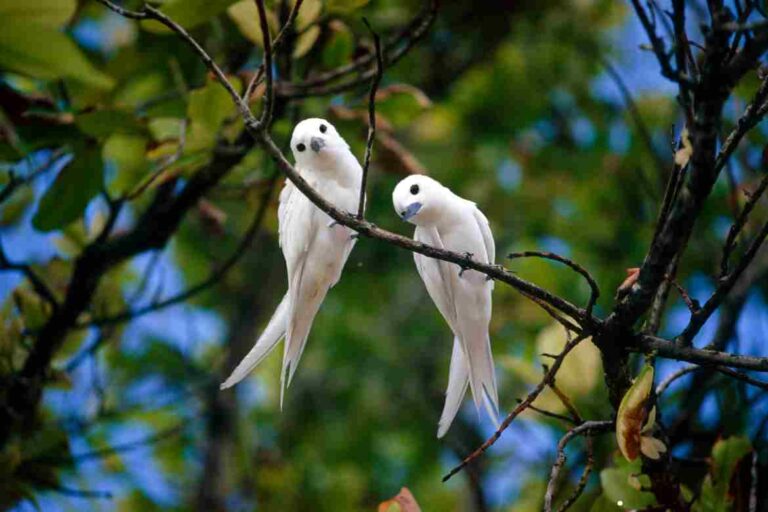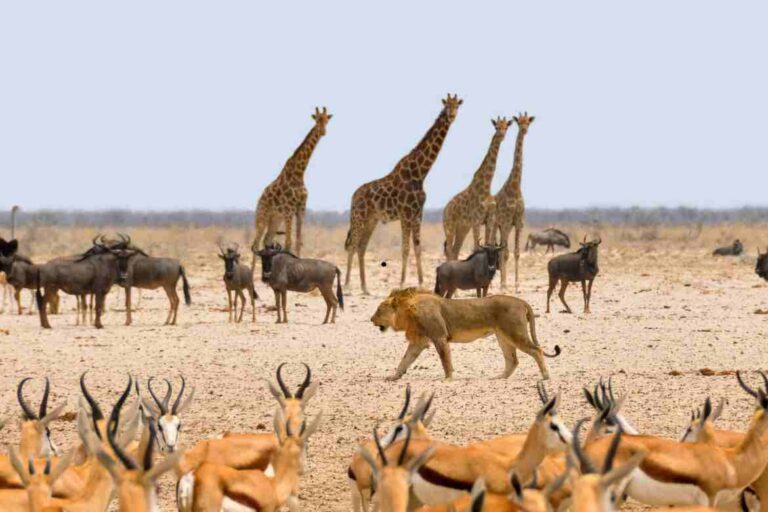Can Ducks Eat Chocolate? Precautions to Know
Yes. And No. Ducks should NEVER be fed chocolate. In it contains theobromine and caffeine. Both which are toxic to birds and, even small amounts have a serious potential for negative health effects including increased heart rate and organ failure in severe cases. Many may consider their ducks would absolutely love the taste of treats dipped in chocolate. Sweet; that is, to humankind. What delights them, however, can surely and tragically harm our feathery friends.
Can Ducks Eat Chocolate:
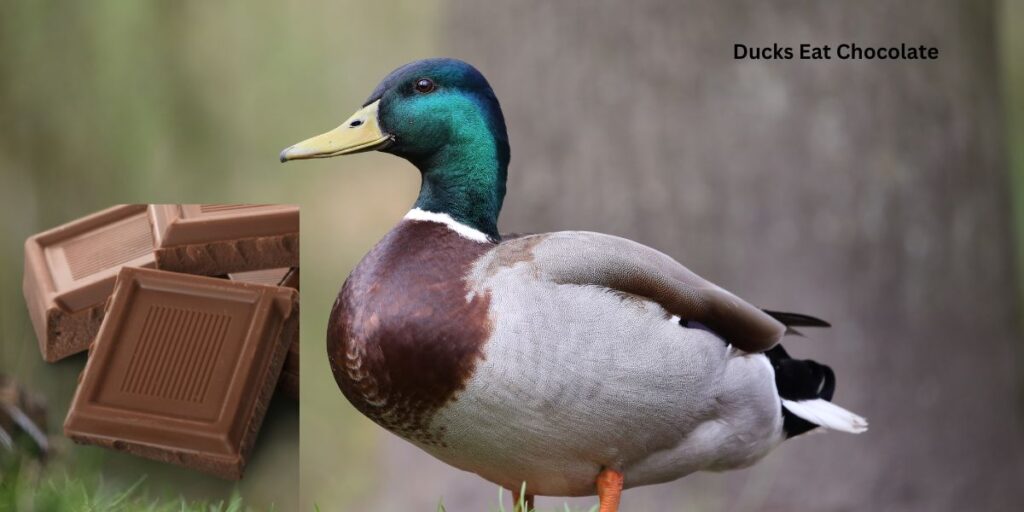
No, ducks should not eat chocolate. Although it is quite tempting to share a sweet treat with these lovely birds, chocolate contains substances that are toxic to them, mainly theobromine and caffeine.
Ducks metabolize these compounds much differently than humans do; even small amounts can lead to serious health issues such as vomiting, diarrhea, increased heart rate, or worse.
Every bird lover wants to know some new thing releated to birds. Instead of chocolates or sugary snacks, consider offering ducks healthier alternatives like grains, seeds, and fresh fruits or vegetables. These options not only satisfy their dietary needs but also align with their natural foraging behavior in the wild. Do you know Can Chickens Eat Tomatoes: Benefits and Risk
, Read the info.
That way, we’ll be making informed choices of what to feed our feathered friends so they remain happy and healthy while enjoying the wonders of their environment!
Is Chocolate Toxic To Ducks?
Yes, chocolate is indeed toxic to ducks. Ducks metabolize compounds in a way different than that of humans. The composition of chocolate contains theobromine and caffeine both of which can have fatal effects on birds. Their consumption can cause a host of symptoms from vomiting and diarrhoea to full fledged seizures or even a dead duck.
To avoid health damage to these adorable creatures, it would be better to offer them safe appropriate foods, like grains or leafy greens. In doing so, we are supporting the health of ducks while appreciating the beauty they create for our waterways and parks.
What Happens When Ducks Eat Chocolate?
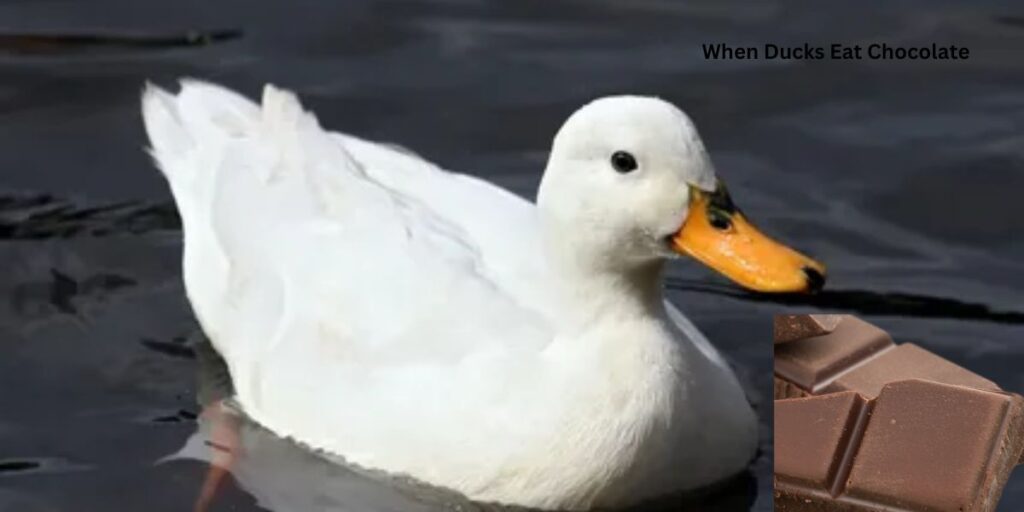
Like many animals, ducks have particular physiologies that determine the capacity of a duck to digest various foods. In feeding ducks with chocolates, serious complications may occur in ducks because of the theobromine and caffeine substances found in chocolate which poison many animals. Unlike humans, ducks cannot process these substances, causing lethargy, increased heart rate, and even seizures.
Absorption and Metabolism
It also presents serious consequences because the chemical theobromine, to which many animals are sensitive, is found in chocolate. While the human body processes theobromine perfectly, the duck does not, leading to a likelihood of toxicity that presents through symptoms like a rapid heartbeat, seizures, or death.
The instinctive approach ducklings have toward food can lead them astray; they may not recognize chocolate as harmful despite their innate foraging behaviors. Understanding this metabolic challenge sheds light on broader ecological interactions. Ducks are often found foraging near human habitats where discarded food items pose risks to their health.
Nervous System Effects
When ducks ingest chocolate, the compound that is within cocoa called theobromine is severely toxic to their nervous system. Humans metabolize much faster, and this tends to make it build up toxically within their bodies.
This has the effect of causing a restlessness, or even possibly a seizure of the patient due to being over stimulated by the treat on the central nervous system. Such effects are thus variable to the dose but dark chocolate is the worse because of its high level of theobromine.
Cardiovascular Effects
The cardiovascular effects can be more worrisome when ducks eat chocolate. Chocolate contains substances such as theobromine and caffeine, which are toxic to most animals, including birds. Unlike humans, ducks metabolize these compounds much less effectively, which may disrupt their heart rhythm and cause an increase in heart rate. This strain on the cardiovascular system may be shown as arrhythmias or even lead to severe cases such as cardiac arrest.
Is There a Safe Type of Chocolate for Ducks?
This question, when treating our feathered friends, always arises about whether chocolate is safe for ducks. While the world is very well known for chocolate’s toxicity in dogs and cats because of theobromine, ducks are a little different when it comes to digestion of certain substances.
Caution is the word: in general, any type of chocolate should be avoided in a duck’s diet. Even a few droplets can cause serious health damage since their bodies do not produce mechanisms to metabolize that chemical. Fruits including grapes or berries add taste with no danger by naturally introducing necessary vitamins and minerals to their diet. Grains like oats or cooked rice add an energy source and are substantially safer options that will get your ducks happy and healthy without compromising their welfare either.
Why is Chocolate Bad for Ducks?
Chocolate, while beloved by many humans, poses significant risks to ducks and other birds due to its theobromine and caffeine content. These compounds are toxic to avian species as they metabolize substances differently than mammals. When ducks consume even small amounts of chocolate, they can experience a range of adverse effects including increased heart rate, restlessness, overheating, and in severe cases, cardiac arrest.
Can Ducks Eat Chocolate Chip Cookies?
Ducks are not infrequently observed quacking and waddling through parks, often charming children with their goofy antics. Although it would be tempting to give our favorites, such as chocolate chip cookies, to these delightful waterfowl, careful restraint is urged.
Since ducks have different digestive abilities that cannot include treats with excessive sugar and fats, feeding chocolate chip cookies to the ducks would definitely be reckless. The ingredients used in these tasty little morsels contribute to health problems such as obesity or, in more serious cases, gastrointestinal upset.
Can Ducks Eat Chocolate Cake?
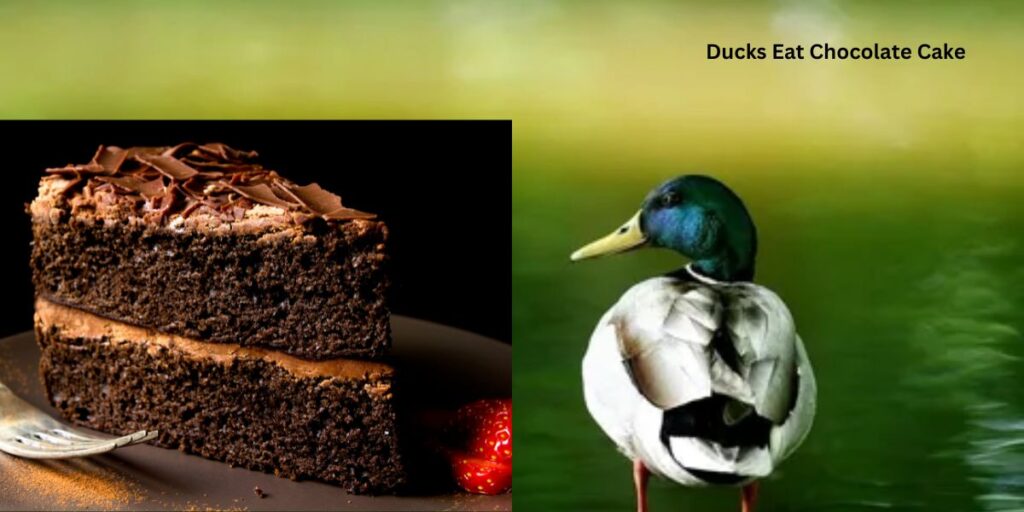
While it might be tempting to share a treat with your feathered friends, chocolate chip cookies are a serious risk to ducks. Ducks have unique digestive systems that aren’t geared to process many human foods, and chocolate is particularly toxic to them. The theobromine and caffeine found in chocolate can cause severe health issues; just like in dogs, these substances can cause distress and even life-threatening conditions if ingested in sufficient quantities.
Final Thought:
While ducks may be curious creatures that enjoy a variety of foods, chocolate should never be on their menu. Theobromine and caffeine, both present in chocolate, can lead to serious health issues for these birds.
Instead, it’s essential to provide them with safe and nutritious treats like grains, vegetables, and specially formulated duck feeds. Educating ourselves about the proper diet for ducks not only ensures their well-being but also fosters a healthier environment for our feathered friends. Let’s commit to making informed choices and keep our ducks happy and healthy!
FAQs:
Are avocados harmful to ducks?
Yes, avocados contain a compound called persin that is toxic to birds, including ducks.
Can I feed bread to ducks?
No, ducks should not eat bread as it can lead to malnutrition and other health issues.
Can ducks consume dairy products?
Ducks are lactose intolerant, so dairy products should be avoided as they can lead to digestive distress.
- Mexican Red Headed Bird: A Brilliant Avian Wonder - January 16, 2025
- Can Turkeys Eat Bread? - January 15, 2025
- crocodile and plover bird relationship articles for students - January 12, 2025

